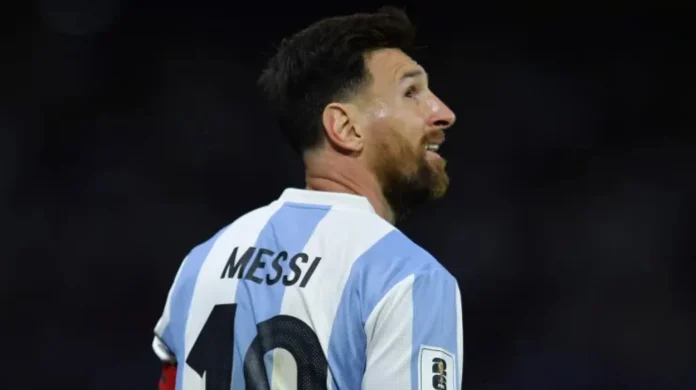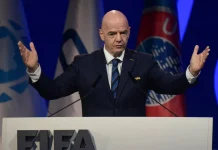The FIFA Club World Cup has long been a prestigious tournament showcasing the best club teams from across the globe. Integral to the tournament’s narrative is the recognition of outstanding individual performances, traditionally celebrated through awards such as the “Man of the Match” or “Player of the Match.” However, in recent editions of the Club World Cup, FIFA has adopted the term “Superior Player of the Match”, a departure from conventional football terminology. This change has sparked debate among fans, analysts, and stakeholders alike, raising questions about the motivations behind the new terminology and its implications for football culture.
The Origins and Context of the “Superior Player of the Match” Award
The “Superior Player of the Match” award at the FIFA Club World Cup is essentially the tournament’s version of the traditional Man of the Match or Player of the Match accolade. This award is presented to the best performing player in each match, recognizing their critical contributions on the field. The award was first introduced in the Club World Cup in 2013, but the terminology has evolved over time, particularly in recent years.
One of the key drivers behind the adoption of the term “Superior Player of the Match” is sponsorship and branding. The award is currently sponsored by Michelob ULTRA, an American beer brand that markets itself as a “Superior Light Beer.” This sponsorship has influenced the naming of the award in the Club World Cup and other tournaments held in the United States, such as the CONCACAF Champions Cup and Copa America. The alignment between the award’s name and the sponsor’s branding is a clear example of how commercial interests can shape football traditions.
The award is decided through a public voting system during the match, typically open between the 60th and 90th minute, allowing fans worldwide to actively participate in selecting the recipient. This democratization of the award process enhances fan engagement and creates a sense of shared ownership over the recognition of player excellence.
Notable Recipients and the Award’s Prestige
In the 2025 Club World Cup, veteran goalkeeper Oscar Ustari of Inter Miami was the first recipient of the Superior Player Award. His performance was pivotal, making eight saves, including a crucial penalty stop, in a goalless draw against Al Ahly. Ustari’s recognition underscores that despite the name change, the award continues to honor exceptional individual contributions that influence match outcomes.
Other notable recipients in the 2025 tournament included players from top-tier clubs such as Bayern Munich, Paris Saint-Germain, Chelsea, Boca Juniors, and Flamengo. The winning team of the Club World Cup receives a golden emblem to display on their jerseys until the next tournament in 2029, symbolizing their status as reigning champions and adding further prestige to the competition.
The Shift from “Man of the Match” to Gender-Neutral and Sponsored Terminology
Historically, football awards for best players in matches were commonly referred to as “Man of the Match.” However, as the sport has become more inclusive and globally diverse, FIFA and many leagues have shifted towards gender-neutral language, adopting the term “Player of the Match” since the 2022 World Cup in Qatar. This change reflects a broader societal movement toward inclusivity and recognition of women’s football.
In this context, the emergence of the term “Superior Player of the Match” is somewhat unique. While it aligns with the trend toward gender-neutral terminology, the “Superior” prefix is primarily linked to sponsorship rather than inclusivity. FIFA’s use of this term is a marketing strategy designed to integrate the sponsor’s brand identity into the award, rather than a direct effort to replace traditional terminology for social reasons.
Fan Reactions and Social Media Responses
The introduction of the “Superior Player of the Match” terminology has elicited mixed reactions from fans and social media users. Many fans have expressed confusion or frustration over the new name, questioning its necessity and clarity. Comments such as
“What on earth is a ‘Superior Player of the Match?’”
And
“Superior player of the match? You absolute sausages. Man of the match. End of!”
illustrate the bewilderment and resistance among traditional football followers.
Some critics have gone further, labeling the change as “utter woke nonsense”, reflecting broader dissatisfaction with what they perceive as overcomplication or political correctness infiltrating football culture. These reactions highlight the tension between preserving football traditions and adapting to modern branding and inclusivity trends.
Despite the controversy surrounding the name, there is general agreement among stakeholders that the award itself remains a respected form of recognizing outstanding individual performances. The substance of the award—honoring excellence on the pitch—continues to resonate with fans and players alike.
Stakeholder Perspectives on the Award’s Naming and Purpose
FIFA officials have clarified that the use of “Superior Player of the Match” is primarily a sponsorship-driven decision rather than a deliberate linguistic reform aimed at inclusivity. The term aligns with Michelob ULTRA’s branding as a “Superior Light Beer,” reflecting marketing synergy rather than social messaging.
Football analysts and commentators recognize that while the name may be unusual or jarring to some fans, the award’s intent remains unchanged: to honor the best player in each match. The public voting system, which empowers fans to select the recipient, adds legitimacy and engagement to the process.
The shift from “Man of the Match” to “Player of the Match” and now to “Superior Player of the Match” can be seen as part of a broader evolution in football culture. This evolution balances tradition, commercial interests, and the increasing importance of inclusivity and fan participation.
The Role of Sponsorship in Shaping Football Culture
The case of the “Superior Player of the Match” award exemplifies the growing influence of sponsorship and commercial partnerships in modern football. As tournaments seek to maximize revenue and global reach, integrating sponsor branding into awards and other aspects of the game has become common.
While sponsorship brings financial benefits that support the sport’s growth and development, it can also lead to changes in terminology and presentation that may clash with traditional fan expectations. The “Superior Player” naming is a clear example of how commercial considerations can redefine football customs.
This trend raises important questions about the balance between preserving the sport’s heritage and embracing the realities of a globalized, commercialized football ecosystem. Fans and stakeholders must navigate these changes while maintaining the essence and spirit of the game.
Tradition, Marketing, and the Future of Football Awards
FIFA’s use of the term
“Superior Player of the Match” at the Club World Cup reflects a complex interplay between tradition, marketing, and evolving social norms. While the award continues to recognize exceptional individual performances, its naming is influenced heavily by sponsorship branding, notably Michelob ULTRA’s “Superior Light Beer.”
Fan reactions reveal a divide between those who value traditional football terminology and those who accept or overlook commercial influences. The broader shift from “Man of the Match” to gender-neutral and sponsor-linked terms mirrors football’s ongoing evolution in an increasingly diverse and commercialized environment.
Ultimately, the “Superior Player of the Match” award illustrates how football culture adapts to new realities while striving to honor the sport’s core values. As sponsorship and inclusivity continue to shape football’s future, stakeholders must balance innovation with respect for tradition to maintain the game’s universal appeal.












